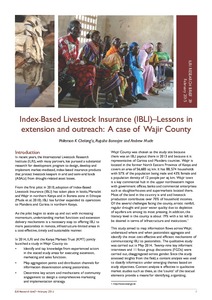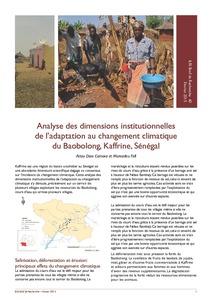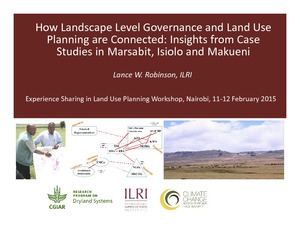Location
Vision, mission and strategy
ILRI's strategy 2013-2022 was approved in December 2012. It emerged from a wide processof consultation and engagement.
ILRI envisions... a world where all people have access to enough food and livelihood options to fulfil their potential.
ILRI’s mission is... to improve food and nutritional security and to reduce poverty in developing countries through research for efficient, safe and sustainable use of livestock—ensuring better lives through livestock.
ILRI’s three strategic objectives are:
- with partners, to develop, test, adapt and promote science-based practices that—being sustainable and scalable—achieve better lives through livestock.
- with partners,to provide compelling scientific evidence in ways that persuade decision-makers—from farms to boardrooms and parliaments—that smarter policies and bigger livestock investments can deliver significant socio-economic, health and environmental dividends to both poor nations and households.
- with partners,to increase capacity among ILRI’s key stakeholders to make better use of livestock science and investments for better lives through livestock.
This is ILRI’s second ten-year strategy. It incorporates a number of changes, many based on learning from the previous strategy (2000–2010, initially produced in 2000 and modified in 2002), an interim strategy (2011–2012) and an assessment of the external and internal environments in which the institute operates.
Members:
Resources
Displaying 241 - 245 of 1152Report on local conventions governing NRM Mali - Final version Feb 2015
A study was conducted in two districts (Bougouni and Koutiala) of southern Mali to document and analyse existing local conventions governing the management of natural resources in mixed crop-livestock systems. Participatory Rural Appraisal (PRA) and individual interviews were conducted to collect data on the existing local conventions and on the participation of local population in decentralized natural resource management. In total, the group discussions
Index-Based Livestock Insurance (IBLI) lessons in extension and outreach: A case of Wajir County
Analyse des dimensions institutionnelles de l’adaptation au changement climatique du Baobolong, Kaffrine, Sénégal
How Landscape Level Governance and Land Use Planning are Connected: Insights from Case Studies in Marsabit, Isiolo and Makueni
The present document consists of a workshop presentation in which are illustrated three different studies from three different projects, focused on natural resource governance, but all relevant to land use planning.






